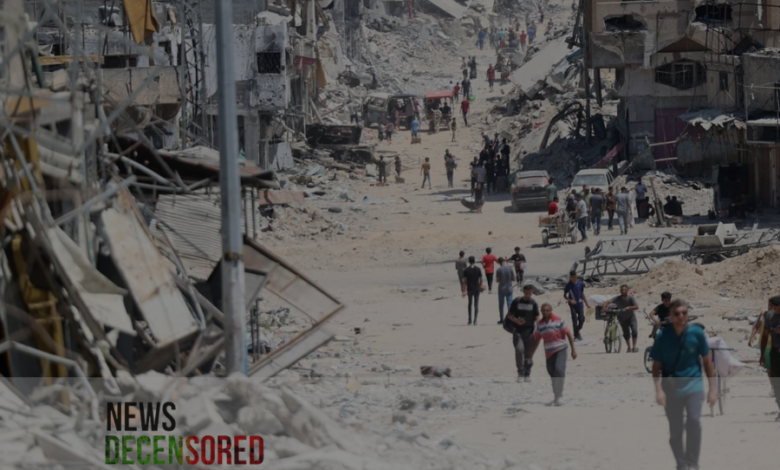60 Bodies Found in Gaza as a Result of Israeli Operation

About 60 dead have been found under the debris in one of the neighborhoods of Gaza City, the officials of the Hamas-ruled territory stated on Thursday. The grim discovery came a day after the Israeli military denounced its operation in the area, saying that they had captured all the targets.
Shujaiya, an eastern district of Gaza City, witnessed a rise in the incidents of fighting, bombardments, and displacements when hostage release and truce negotiations were going on through Qatari intervention. US President Joe Biden stressed the situation is heading in the right direction concerning establishing a ceasefire and highlighted the necessity of stopping the war between Israel and Hamas.
However, there is one specific condition imposed by Israeli Prime Minister Benjamin Netanyahu that still holds significance in displacement; it is the demand that Israel must continue to control strategic border areas of Gaza to Egypt. This demand is, in a way, contradictory to Hamas’s position that Israel must pull out from all the Gaza territories that it occupies after the ceasefire.
Gaza’s civil defense agency said it found a number of his corpses, around 60, in Shujaiya after some intense fighting in Gaza City in recent months. Hamas officials said the operations destroyed over 300 apartments and more than 100 stores in the neighborhood.
For example, Mohammed Nairi, who was returning to Shujaiya, was faced with severely ruined neighborhoods. “All the houses were demolished,” Nairi said. The extent of the devastation was immense and defied description.
Although the Israeli DG, earlier on Wednesday, announced that its operation in Shujaiya was over after two weeks, gun battles and shelling continued across Gaza City. Equipment and people were said to have been relocated to other areas of the city; bombings occurred in the Sabra area while fighting between the raiders and Israeli defense forces happened in the Tel Al-Hawa district.
Hamas reported 45 airstrikes in the Gaza City zone, as well as in Rafah, which is the south of the Gaza area. Netanyahu stated that this is the approach to the war’s climax in the Rafah.
In negotiations in Doha, the head of the foreign intelligence service Mossad, David Barnea, was chairing the Israeli delegation. Upon his return, in a televised statement, Netanyahu claimed that Israel needed total control of the border between the Gaza Strip and Egypt to make sure that weapons would not get through to Hamas and continued the battle until the ‘extermination of Hamas’ and the hostage’s release.
It was reported by a Washington Post that both sides, Israel as well as Hamas, had given some initial nod toward an interim administration under which they would not be governing Gaza. However, another force to secure the area was the PA supporters trained by the United States.
Given several drawbacks and adverse situations observed in the Mediterranean during an experimental operation to transfer humanitarian aid to Gaza from Cyprus by sea and several incidents implying damage to a temporary pier had been caused by storms, the Pentagon announced the termination of this doubtful experiment.
At the same time, WHO, the UN’s health agency, stated that only five trucks with medical supplies entered Gaza last week. World Health Organization chief Tedros Adhanom Ghebreyesus stressed the quantity of assistance still waiting to enter various crossings.
Israel has launched a warfare action that flattened neighborhoods in Gaza and claimed at least 38,345 Palestinians, most of them civilians, as per Gaza’s health ministry.
The IDF again brought the message that Gazans, especially those in Gaza City, are under constant threat and suggested that they leave the area as follows on the flyers. The UN claimed that the Palestinians whose suffering these evacuations would escalate are families that have been displaced severally.
Hamas official Hossam Badran said: ‘Such massacres are committed by Israel that further pushes the Hamas leadership to insist on its terms in ceasefire agreements.’ Continued attacks after the ceasefire in Rafah, 37 gunmen were reported killed, and more attacks using Israeli planes and tanks were conducted in response to rockets fired at Israel.
Moreover, the Israeli military admitted that they failed to provide a proper defense for Kibbutz Beeri from the attacks carried out by Hamas on October 7, which claimed the lives of more than a hundred people. An overview of the investigation mentioned a cited term ‘lack of coordination’ regarding the military actions.




